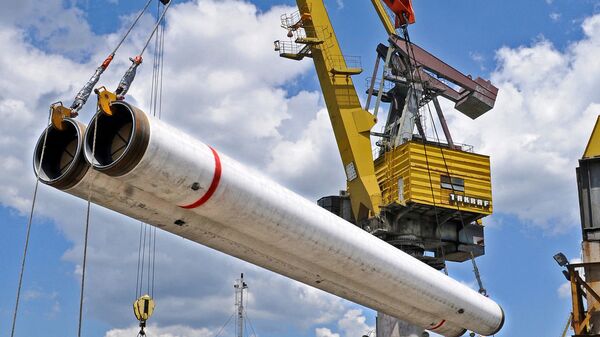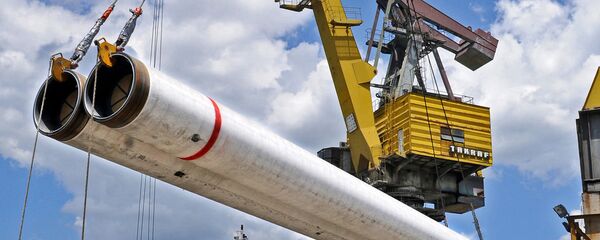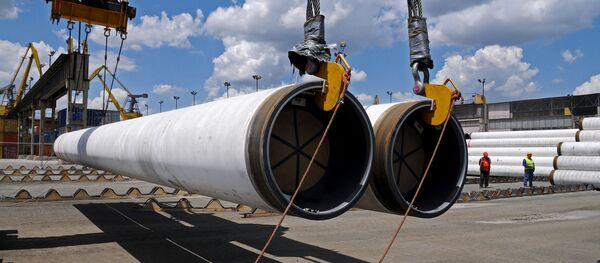It currently remains unclear whether the gas pipeline will be built on land as well. Its construction mainly depends on Europe's interest in Russian gas and corresponding guarantees.
According to experts, there are several European countries that are interested in Russian gas supplies via the Turkish Stream. Director General of the Institute of National Energy Sergey Pravosudov believes that Balkan states are among those countries interested in the project.
"However, there are no corresponding agreements and contracts with them yet; moreover, they should be approved by the European Commission, because it determines work conditions on the territory of the European Union. And in this direction we have a lot of work to do," Pravosudov told Sputnik.
In his turn, Alexei Grivach, Deputy Director General for Gas Projects at the National Energy Security Fund, stated that Bulgaria is also among the potential recipients of Russian gas via the Turkish Stream.
"The countries that border Turkey are interested in the project. Now they are receiving gas via the Transbalkan gas pipeline, where large amounts of gas go to Turkey. These are such countries as Bulgaria and Greece, small amounts also go to Romania and Macedonia," Grivach said.
If Gazprom implements its plans, gas transit through Ukraine can be drastically reduced, while Ukraine would play the role of a reserve transit country, experts believe.
At the same time, they noted that much will depend on the volume of gas consumption in Europe. If the demand continues to grow, then the Ukrainian gas pipeline system is also likely to be actively used by Russia to transit its gas to Europe, analysts concluded.




